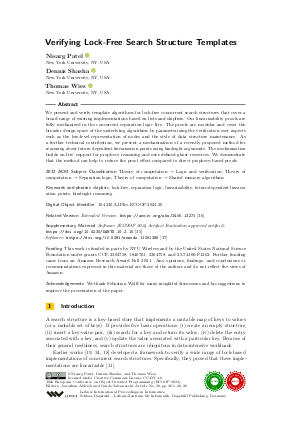LIPIcs.ECOOP.2024.30.pdf
- Filesize: 0.65 MB
- 28 pages

 Creative Commons Attribution 4.0 International license
Creative Commons Attribution 4.0 International license


































Feedback for Dagstuhl Publishing